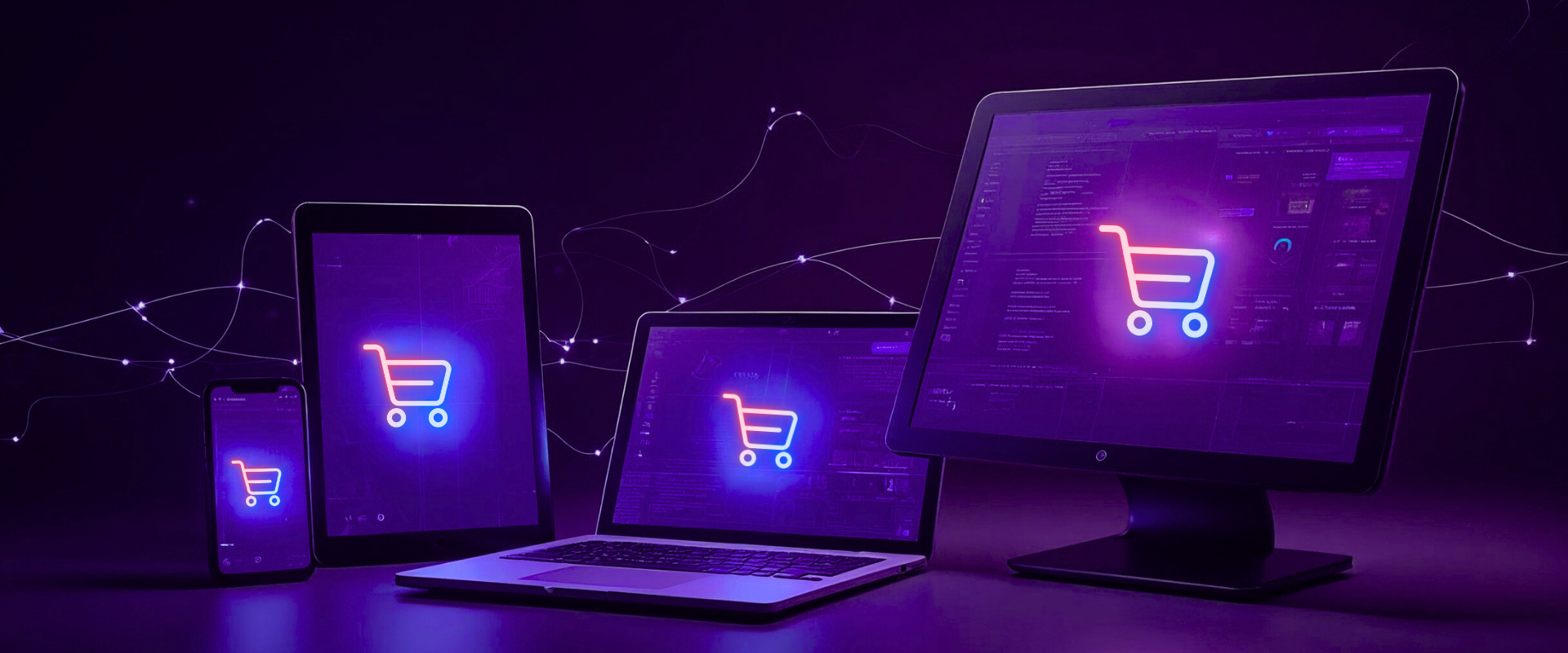Published on
September 29, 2025
~
4
min

Commerce in 2025 is an experience, a network, and a data engine.
What used to be a simple exchange of goods now spans a far more complex landscape. From apps and marketplaces to B2B portals, social commerce, IoT, fintech, and channels that are still emerging.
The borders between online and offline have blurred, and the systems behind them now carry more weight than ever.
This blog will explore what digital commerce truly means today and why enterprises that treat it as a core discipline, not a side project, will secure their place in the next era of growth.

Commerce in the digital age goes far beyond a simple online shop; it isn’t just a sales channel, it’s an end-to-end system that touches marketing, fulfilment, loyalty, payments, and every customer interaction.
The term is often talked about, or used as a replacement for e-commerce, although they are different things.
In short, digital commerce connects every aspect of ‘commerce’ into one coherent ecosystem, turning isolated tools into a living, responsive network. This integration enables enterprises to respond to customer needs in real-time, personalise experiences at scale, and make informed decisions based on insights flowing across every channel.
While e-commerce handles the “transaction,” digital commerce manages the entire business model, from engagement to fulfilment, creating agility and resilience that legacy systems cannot match.
In practice, these core elements reinforce one another.
The result is a connected, adaptable system capable of supporting today’s omnichannel expectations.

The pace and complexity of modern commerce have accelerated far beyond the capabilities of traditional systems.
Legacy platforms, built for a time when transactions were simpler and channels fewer, now struggle to keep up.
In Türkiye, the impact is especially clear. Enterprises that once prioritised distribution-first models are increasingly moving toward direct-to-consumer strategies.
Without modern systems capable of connecting data, operations, and touchpoints in real time, these businesses risk losing ground to more nimble competitors who have embraced digital commerce.

In today’s marketplace, expectations have shifted dramatically. Both B2B and B2C customers demand experiences that are fast, seamless, and personalised across every channel.
They expect instant checkout, real-time inventory visibility, mobile-first usability, and consistent service whether interacting via apps, marketplaces, social commerce, or traditional portals.
Meeting these expectations is no longer optional. It’s table stakes!
At the heart of this shift is data. Every interaction within a digital commerce ecosystem generates insights. Enterprises that leverage this data strategically can optimise pricing, promotions, product offerings, and loyalty programs, turning information into a competitive advantage.
And perhaps most crucially, agility is no longer negotiable. Market trends evolve overnight, new sales channels emerge, and customer expectations continue to rise. Businesses need the ability to pivot quickly, integrate new touchpoints, and launch initiatives without the costly delays of replatforming.
For enterprises seeking to thrive in the rapidly evolving digital commerce landscape, taking deliberate, structured steps is crucial.
Digital commerce is the backbone of modern enterprise growth in 2025. In today’s landscape, success hinges not on isolated sales channels but on the ability to orchestrate a seamless, data-driven ecosystem that connects every touchpoint, every operation, and every customer interaction.
Enterprises that embrace digital commerce are gaining the agility to adapt, the insights to make smarter decisions, and the capability to foster loyalty at scale.
They can anticipate trends, personalise experiences, and innovate faster than competitors tied to legacy systems.
Those who delay risk more than just missed opportunities; they risk irrelevance. In a market where expectations evolve daily and new channels emerge constantly, standing still is no longer an option.
For enterprises seeking to thrive, the question is not if but how. Platforms built for the future, like Lidia Commerce, provide the architecture and intelligence to unlock the full potential of digital commerce, turning every interaction into a strategic advantage.
The time to act is now. Start today with Lidia Commerce!